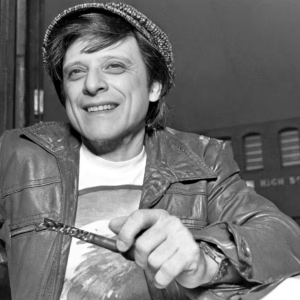
Harlan Jay Ellison, born May 27, 1934, in Cleveland, Ohio, was not merely a writer; he was a force. A literary provocateur, a relentless innovator, and a master of speculative fiction, Ellison carved a defiant niche for himself in a genre often wary of the truly unconventional. His life, much like his work, was characterized by passionate intensity and a refusal to compromise.
Ellison’s early years were marked by controversy and a voracious appetite for reading. Isolation fostered a fertile imagination, one that would later populate worlds brimming with complex characters and challenging ideas. He began selling stories in the late 1950s, quickly establishing himself as a rising star within the science fiction and fantasy genres. However, Ellison wasn’t content to simply write genre fiction; he sought to elevate it, to imbue it with literary weight and social commentary.
The early 1960s saw Ellison become a prominent figure in the “New Wave” movement of science fiction. This period was defined by experimentation, psychological depth, and a willingness to confront uncomfortable truths. Authors like J. G. Ballard and Samuel R. Delany were pushing boundaries alongside him, but Ellison’s voice remained distinctly his own—raw, visceral, and often laced with anger. Where Ballard explored the sterile landscapes of inner space, and Delany delved into complex social structures, Ellison focused on the individual struggling against overwhelming forces, both internal and external.
His style was immediately recognizable: a breathless, almost manic energy driven by staccato sentences and a surrealist’s eye for image. He eschewed traditional narrative structure in favor of fragmented perspectives and jarring juxtapositions. This approach, while sometimes alienating to more conservative readers, proved incredibly influential on subsequent generations of writers. He wasn’t interested in building meticulously detailed worlds; he was interested in the impact those worlds had on the human psyche.
Cosmic Striptease, published in 1957 under the house pseudonym E. K. Jarvis, stands as a pivotal work within this context. The story, with its satirical take on first contact and media spectacle, perfectly encapsulates Ellison’s early concerns about consumerism, technological dependence, and the superficiality of modern life. It was a bold statement at a time when science fiction often focused on grand space operas or cautionary tales of robotic uprisings. The narrative’s abrupt shifts in perspective and its cynical portrayal of both scientists and television executives foreshadowed Ellison’s later, more overtly political work.
Ellison’s impact extended beyond his own writing. He was a tireless advocate for writers’ rights, famously clashing with publishers and networks over issues of censorship and fair compensation. His outspoken nature earned him both admirers and adversaries, but it also forced the industry to confront its own shortcomings. He became a mentor to many aspiring authors, encouraging them to find their unique voices and challenge conventional expectations.
Harlan Ellison’s legacy is not simply one of groundbreaking stories; it’s a testament to the power of uncompromising vision. He demanded that science fiction be taken seriously as literature, and in doing so, he helped redefine the boundaries of the genre itself—leaving an indelible mark on the landscape of speculative fiction for decades to come.